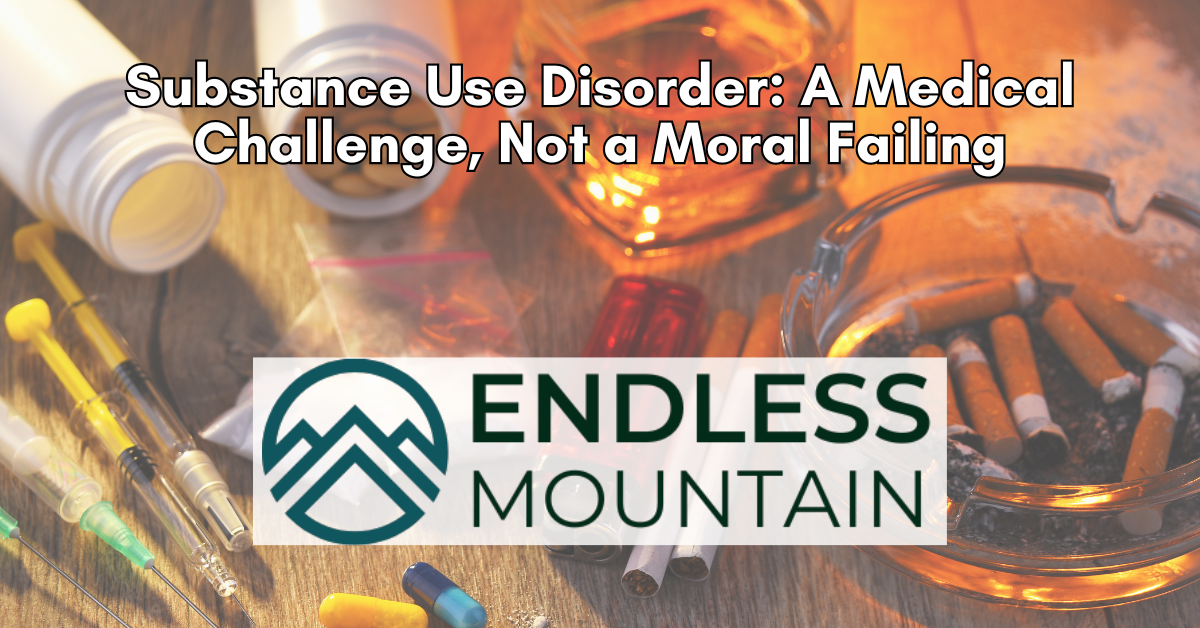Substance use disorder (SUD) is a complex and often misunderstood condition that affects millions of individuals globally. One pervasive misconception that continues to stigmatize those grappling with SUD is the belief that it is a moral failing. In this blog post, we aim to debunk this harmful stereotype and emphasize that SUD is a medical challenge that requires empathy, understanding, and evidence-based treatment.
Understanding Substance Use Disorder: Substance use disorder is recognized by leading medical and mental health organizations, including the American Psychiatric Association, as a diagnosable medical condition. It is characterized by an individual’s inability to control or stop using substances despite experiencing negative consequences.
The Bio-Psycho-Social Model: SUD is best understood through the bio-psycho-social model, which acknowledges the interplay of biological, psychological, and social factors. Genetic predisposition, mental health issues, trauma, and environmental influences all contribute to the development and progression of SUD. It is not a matter of moral weakness but a complex interplay of various elements.
Neuroscience and Addiction: Advances in neuroscience have revealed the profound impact of substance use on the brain. Addiction alters neural pathways, leading to compulsive substance-seeking behavior. This neurological aspect of SUD further emphasizes its medical nature, dispelling the notion that it is solely a matter of willpower or morality.
Stigmatizing Language and Its Consequences: Describing SUD in moral terms perpetuates harmful stereotypes and can have severe consequences. Stigmatizing language contributes to societal judgment, discrimination, and the marginalization of individuals seeking help. Changing the narrative requires using language that reflects the medical nature of SUD.
The Role of Trauma and Coping Mechanisms: Many individuals with SUD have experienced trauma, and substance use often becomes a coping mechanism. Understanding the link between trauma and SUD highlights the importance of addressing underlying issues rather than placing blame on moral character.
Access to Treatment and Support: Recognizing SUD as a medical condition underscores the need for accessible and evidence-based treatment. Individuals should be encouraged to seek help without fear of judgment. Supportive communities and healthcare systems play a crucial role in facilitating recovery.
Recovery as a Journey: Recovery from SUD is a complex and ongoing process. Embracing a compassionate approach acknowledges that relapses may occur and that recovery is a journey marked by resilience and determination. Shifting the focus from blame to support is essential in fostering a recovery-oriented society.
Substance use disorder is not a moral failing but a medical challenge that requires a comprehensive and compassionate approach. By dispelling the stigma associated with SUD, we can pave the way for greater understanding, empathy, and effective support systems. It is time to recognize that individuals facing SUD deserve empathy, access to evidence-based treatment, and the opportunity to rebuild their lives without judgment or moral condemnation.

